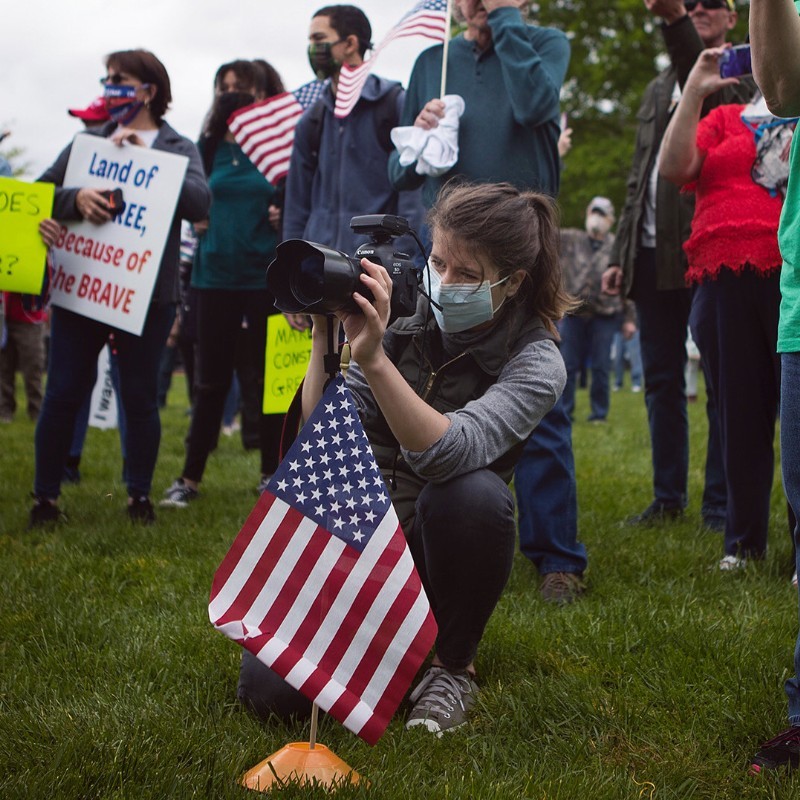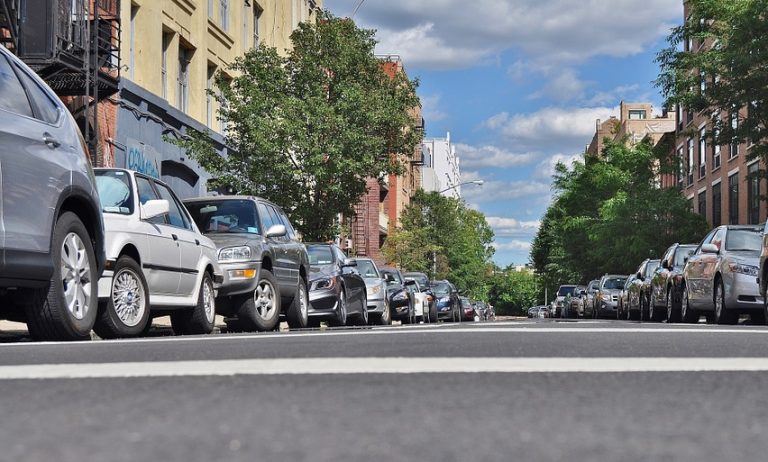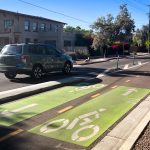With all the talk of alternative transportation, it’s easy to forget that a majority of people in the U.S. rely on cars every day. Though we now talk about development corridors popping up around light rail or subways, highways have pushed development beyond city centers for decades. With those easy, fast roads comes the need for a place to park when drivers get where they’re going.
Cars spend approximately 95 percent of their time parked, and that statistic is ripe with untold stories. According to industry information reporter IBISWorld, revenue from off-street parking lots has been growing. In 2016 it totaled $10.3 billion. The report states that 41 percent of this revenue comes from private owners in business centers. Airports are the next highest money-maker, representing 25 percent of the total.
Despite its deep pockets, the parking industry faces pressures from changing preferences, rising gas prices and mechanization. Community business reporters can find a host of stories in the local parking scene.
Street parking
Parking in cities and towns is divided between metered street parking and surface lots or garages. Most people assume that municipalities control all street parking, but this varies from city to city. In Philadelphia, a state agency regulates street parking, in New York City it is controlled by the city’s department of transportation and in Chicago the rights to parking funds have been sold to private companies. A city government may be entitled to keep some funds, but may also be required to give a substantial portion to the state.
Since funds from meters and parking tickets can be a big budget booster, some cities, including Chicago and Philadelphia, have attempted to regain control. However, in these two cases things seem to be set in stone, at least for the time being. Chicago sold the rights to its city parking for 75 years in 2008 and in Philadelphia, lawyers have warned that attempts to wrest control from the state agency wouldn’t hold up in court.
Reporter’s tip: Look in your city’s Comprehensive Annual Financial Report to locate revenue generated from parking. If your city has sold the parking rights to a private corporation, as in Chicago, an annual audit by the city may gives details on how much money the city is missing out on. Look at this report on traffic tickets in Austin for an example of how the story could be done.
The “real” cost of parking
Scholars, environmentalists and government officials have claimed that drivers are not paying the full, true cost of parking a vehicle. They say subsidization of parking by workplaces, government offices, shopping areas and schools is doing a disservice to both the environment and the city coffers.
Here’s the argument: Most subsidized parking lots do not earn revenue commensurate with the value of the land. This is why private parking lots charge much more than lots controlled by institutions. Some say it makes more economic sense to encourage walking, biking and mass transit options because they decrease traffic and pollution, making a city more appealing. Supporting this argument, nearly half of respondents in a survey of parking professionals by the International Parking Institute think the desire for liveable and walkable cities will be the greatest change affecting future parking. Environmental concerns and millennial attitudes also ranked highly.
However, local retailers and downtown associations say free and discounted parking encourages shoppers. Already competing with online retailers, business owners want to make the brick-and-mortar experience as pleasant as possible. A report from the Chicago Metropolitan Agency for Planning showed that access to parking affects where consumers will shop. But it also revealed that inexpensive parking is harmful to the retail industry as a whole because it reduces incentive for other modes of transportation and gives away valuable space.
Reporter’s Tip: Find the true cost of parking is in your city by looking at land and real estate prices. Compare revenue generated by subsidized and private parking garages. Look at big-picture impacts such as emissions, traffic congestion and livability. Use these to help measure the impact of low-cost and free parking.
The future of parking
As with so many industries, technology is changing the parking business. Ride-sharing programs will continue to drive down the need for parking. It is estimated that the more accurate parking capabilities of smart cars could cut down on needed space by 25 percent.
Smart cars aren’t the only technology advancement making a change. Soon, parking meters could be a thing of the past. While many have already moved from coins to credit cards, the first wave of cities and companies is now switching to parking apps. These apps allow users to search for open spots, reserve and pay—all on their phones. This cuts down on the time spent circling the block, therefore reducing traffic and increasing efficiency. There is a downside: Some cities make more money from parking tickets than from meters, so an easier way to pay could cut into these profits.
Reporter’s Tip: See if any facilities in your area have switched to parking apps. Talk about more changes that are coming to the industry and how this could disrupt current jobs. Also look at city revenue pulled in from parking meters vs. tickets to see if more convenient parking could hurt the bottom line.
Environmental push
A recent movement in parking lots and garages encourages greening-up of facilities. One measure gaining popularity is reserving the most convenient spaces for compact cars or ride-shares, to encourage environmentally friendly travel. Among the proponents: the New York City Department of Transportation, which recently started a pilot program that reserves a portion of highly coveted spaces for car sharing organizations. Parking garages are also switching to energy saving lighting. However, sustainability advocates still say the excess of cheap, available parking chokes out development of other options and encourages too much car use.
Reporter’s Tip: Targeting parking is a unique way to achieve sustainability goals. Talk to groups in your area to see if they are eyeing the parking industry, and what changes could lie ahead.











